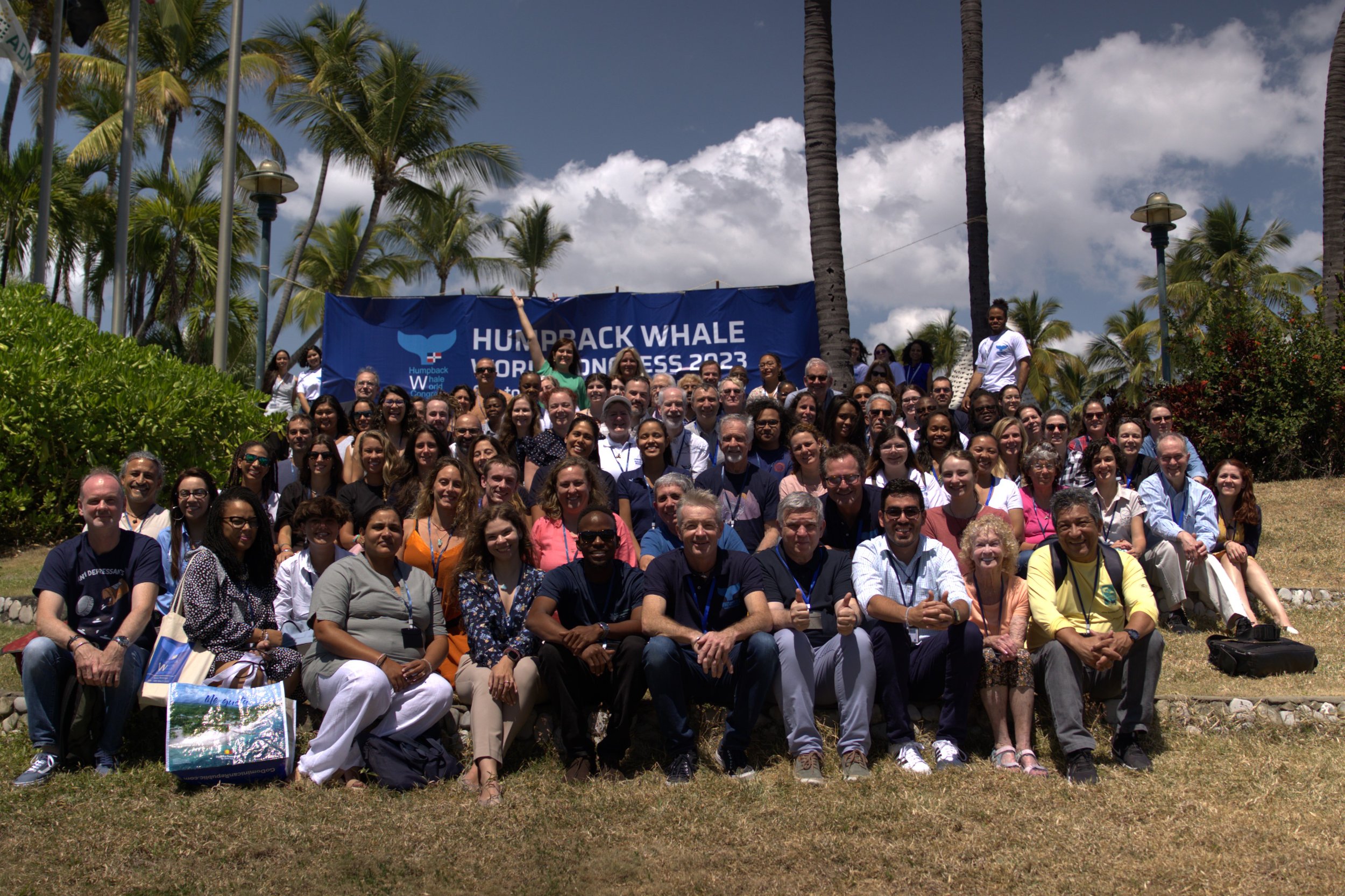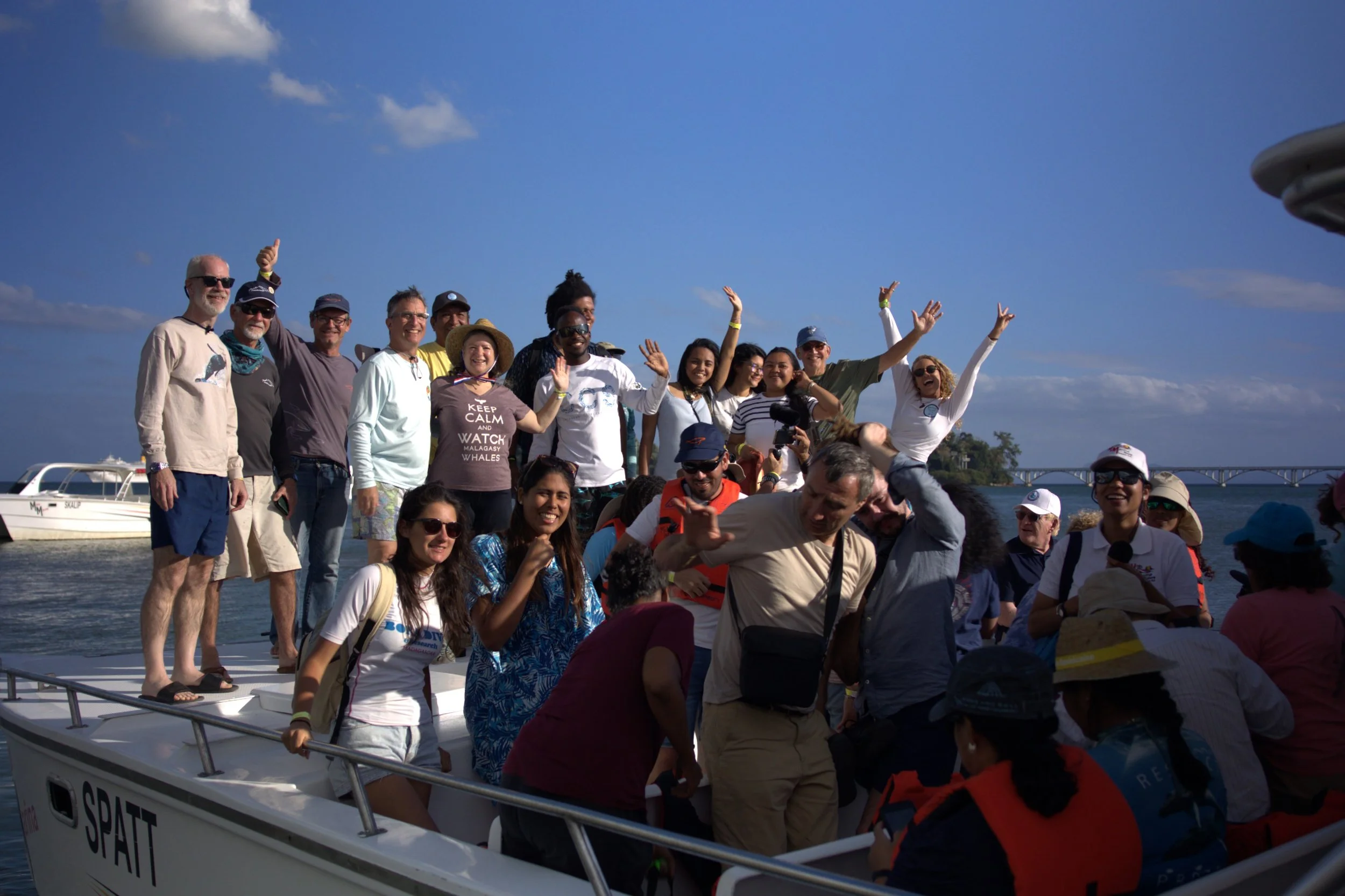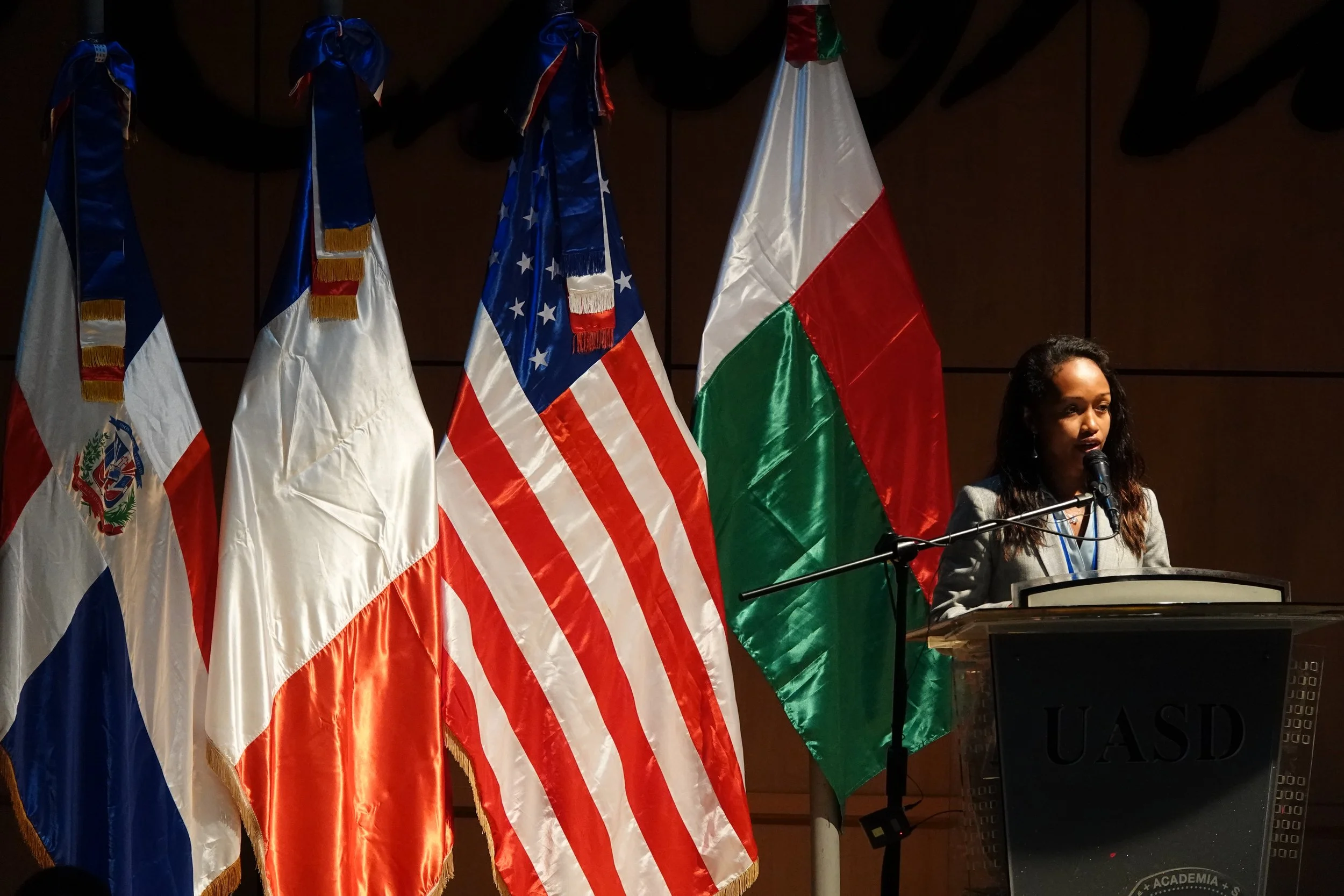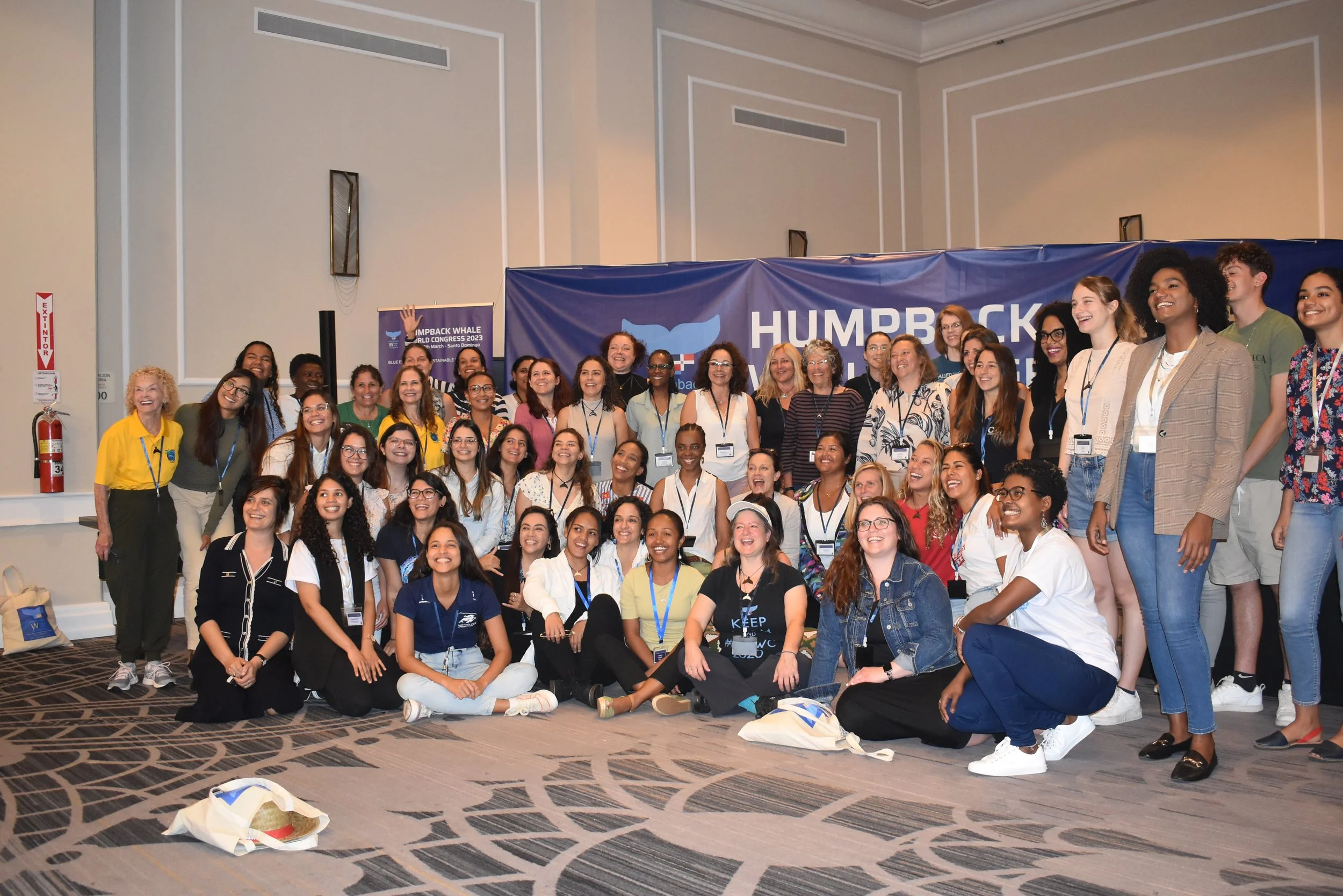
3rd Humpback Whale World Congress
Santo Domingo, Dominican Republic
The 2023 edition of the Humpback Whale World Congress (HWWC), held in Santo Domingo, Dominican Republic, from March 6th to 10th, brought together a multidisciplinary community focused on the conservation and study of humpback whales. The Congress, founded by Cétamada, continues to be a central gathering for scientists, engineers, managers, artists, students, and marine enthusiasts, emphasizing global collaboration and knowledge-sharing.
Theme: The Blue Economy for Sustainable Growth Assessment
The 2023 congress underscored the critical role of the blue economy in promoting sustainable growth, particularly through whale watching and other marine-based activities. The event focused on four main challenges:
Combating Biodiversity Decline: Humpback whales are a strategic marine species under international conservation efforts, particularly in protected areas facing significant oceanic pressures.
Raising Awareness and Supporting the Blue Economy: Sustainable development initiatives, such as responsible whale watching, enhance both environmental awareness and economic prosperity.
Fighting Global Warming: Research highlighted the potential role of humpback whales in decarbonizing the oceans, offering a natural solution to combat climate change.
Transmission and Capacity Building: Youth engagement and education are critical priorities, with knowledge dissemination and training forming the foundation of sustainable development strategies.
A Global Collaboration in a Symbolic Location
The Dominican Republic was chosen for its historical and current contributions to marine conservation, being home to the first national whale sanctuary and several impactful environmental initiatives. The Congress began with a session on the nation’s pioneering conservation efforts, detailing policies and research collaborations dating back to the 1980s. Presentations recognized the efforts of both local and international researchers who helped develop key whale conservation programs and sanctuaries.
Scientific Highlights and Innovations
Whale Watching and Citizen Science: The Congress emphasized the role of whale watching in education and conservation, showcasing examples from Ecuador and Réunion Island. Participants discussed how whale-watching operators contribute to scientific research by sharing photo-identification data.
Impact of Human Activities: Sessions addressed the threats humpback whales face, including fisheries, plastic pollution, underwater noise, and ship collisions. New strategies and technologies, such as the Marine Strategy Framework Directive, aim to mitigate these impacts.
Advanced Research Methods: Talks covered emerging technologies, such as passive acoustics and satellite imaging, which are revolutionizing whale research. Researchers shared breakthroughs in detecting whale songs, mapping migration routes, and understanding cultural transmission.
Behavioral Studies: Presentations explored mother-calf interactions, feeding techniques, and social behaviors, enhancing our understanding of whale ecology.
Numbers and Program Overview
Participants: 140 attendees from 38 countries
Sessions: 11 oral sessions, 38 presentations, and 11 posters
Workshops: Topics included the blue economy, port activities and the marine environment, and Caribbean marine megafauna and anthropogenic impacts
A Congress for the Ocean Decade
The HWWC 2023 was recognized by the United Nations’ Ocean Decade program and supported by various organizations, including the Dominican Ministry of Environment, the Ministry of Tourism, the Autonomous University of Santo Domingo, and international partners like the French Development Agency.
The Congress concluded with inspiring discussions about ongoing and future collaborations, especially within the Caribbean, strengthening ties between researchers and encouraging the development of new conservation strategies.





